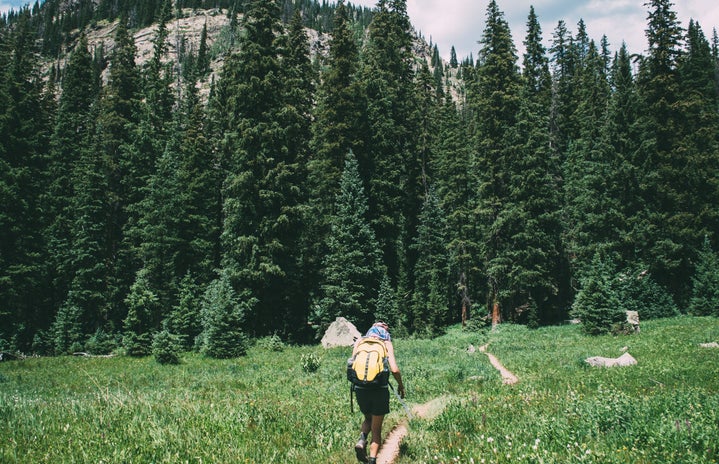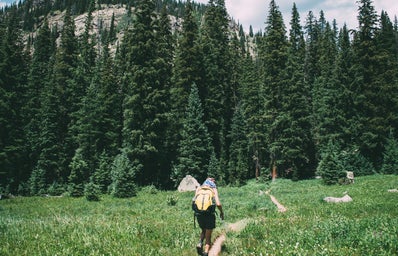Camping is a wonderful way to connect with the environment, yourself, and those around you. I have learned many practical and mental skills from my camping experiences in a multitude of different environs and conditions. Moreover, I firmly believe that no activity is as refreshing for the soul as spending time outdoors. That being said, inevitable challenges will arise during camping as you work through solutions to unforeseen problems and coexist with the wildlife and weather. When you are first starting out camping, these challenges are especially difficult due to inexperience and feeling overwhelmed. While it is important to become comfortable with the uncomfortable, it is even more important to ease into that process and position yourself in circumstances that push you but are still manageable. Becoming a competent camper requires experience and knowledge that can only be gained through continued practice. There is all the time in the world to try out more challenging aspects of camping and you do not want to burn out on the idea as a whole because it was overly difficult at the beginning. There are certain things you can do to make the experience as enjoyable as possible when you are first starting. I have compiled a simple list of things to keep in mind that can help make your first outings go smoothly and ensure that you will want to keep coming back for more.
- Aim for opportune conditions: location
I suggest gauging your comfortability prior to planning your camping trip and determining which setting is right for you as you get accustomed to camping. Many people choose to begin with car camping while others jump straight to packing out to a site. Some people feel more comfortable staying at a site that is relatively close to a town with amenities. Others are nervous about isolation and for those individuals, I would recommend a more populated campsite with established plots and even RVers. For beginning campers, I would universally suggest that the site is not more than a few hours’ hike from the trailhead.
- Aim for opportune conditions: season and weather
As a novice camper, it is a good idea to plan your trip during a time of year where the temperature and predicted weather feels comfortable to you. Of course, the elements are out of our control but you can look at weather trends and typical temperatures for your site to determine your expectations. It is best to get a decent understanding of living in the outdoors before adding more complex factors like inclement weather and potentially dangerous temperatures.
- Consider the trip length
It is easy to be overly ambitious as a new camper. Of course, spending as much time outdoors as possible is amazing! That being said, I would really think about limiting your first few trips to a length that is manageable for your experience level. As you gain experience, you will likely figure out what time frame works best for you mentally and physically, but you do not want to overestimate during those first few experiences and have that turn you off from camping in general. Depending on the type of camping you are doing, necessary materials for a longer trip will actually make the trip itself more strenuous (packing out food and water) and that is important to keep in mind.
- Pack light, but pack what you need!
Overpacking can easily make an otherwise enjoyable experience burdensome. If you are new to camping, it is unlikely that you will have a perfect understanding of how much of what gear you should bring. To combat this issue, I suggest looking at online resources for the type and setting of camping that you will be doing and then sticking to the recommended amount of gear. Those recommendations will likely caution you against bringing double the amount of shirts you need and implore you to bring extra socks, for example. Trust those resources with the things you do and do not need and you will have a much more enjoyable experience. Err on the side of “less is more.”
- Unplug
My last piece of advice is to ditch electronic devices as much as possible. Of course, do not make yourself unnecessarily anxious: if you are nervous about emergency situations, camp at a site with cell service but keep your phone at a distance. Outside of an emergency, technology really only hinders your ability to grow in camping prowess and reap the benefits of spending time outdoors. Books, playing cards, and basic art supplies are excellent ways to relax after a long day while camping and will keep you engaged in the present moment. One of the best things about camping is disconnecting from the stressors in our daily lives and limiting your technology use will open up so many more opportunities to have an impactful experience.
Bottom line, enjoy the camping experience. Taking these informed and intentional steps will help set you up for success when the unexpected throws you for a loop. Allow the inevitable challenges that arise to teach you about yourself and improve your skills. It takes time and experience to know what style of camping is fulfilling for you and my goal with these suggestions is to help make figuring that out well worth your while.


